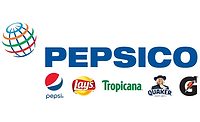Partnerships key to smart water management
Food, beverage companies, nonprofits collaboratively improve water usage

Water is essential for feeding the world. As the global population growth advances toward reaching 8.5 billion by 2030, responsible stewardship of this precious resource is becoming even more important. Agriculture and the processing of food ingredients currently uses 70 percent of the world’s fresh water supply. Already, nearly half of the global population lives in areas that can experience water scarcity at least one month a year, often impacting food security and the well-being of communities and ecosystems.
Sustainability nonprofit Ceres’ “Feeding Ourselves Thirsty” report, the third edition of which was recently published, highlights that for the food and agriculture sectors, water scarcity and mismanagement represent a direct risk to supply chain resilience. In purely financial terms, a 2018 MSCI analysis found that $415 billion in revenue might be at risk from lack of water availability for irrigation or animal consumption.
More companies are recognizing this risk, the Boston-based Ceres has found. Of the 35 publicly traded companies evaluated, 77 percent now specifically mention water as a risk factor in their financial filings, up from 59 percent in 2017. It is heartening also to see that almost all of the 40 companies assessed in the report have improved their scores. Yet, many still are not doing enough to respond to the scale of this threat. According to the report, 37 percent of companies still lack goals to source crops in ways that promote good water stewardship.
Some of the biggest names in food and beverage have recognized that smart water management is a business imperative and have made it an integral part of their supply chain management. In fact, the same companies have appeared among the five highest scorers in each of the three bi-annual Ceres reports to date. These companies, Unilever, Nestlé, General Mills, Coca-Cola and PepsiCo, have the scale, expertise and influence to catalyze broader change across the agriculture sector. This continued leadership is vital, but we all need to do more and faster.
No one company can solely rely on its own efforts. Effective multi-stakeholder partnerships are central to driving further progress. PepsiCo, for example, has set up a global network of more than 100 demonstration farms as part of its Next Generation Agriculture strategy. The company is working alongside pioneering local farmers and agricultural suppliers such as Yara and Netafim to adapt and implement more sustainable agricultural practices designed to improve both yields and environmental outcomes.
Many farmers in PepsiCo’s program have transitioned from wasteful flood irrigation to efficient drip irrigation, and received training on other ways to avoid water waste. Initial results have been impressive. In Thailand, for example, a reduction of as much as 35 percent in average water use was achieved in the first year. Importantly, the program enables peer-to-peer learning with other local farmers, who are invited to visit the demonstration farms to better understand the practices and advantages they bring.
Innovative partnerships also are playing a role in more advanced agricultural regions like the United States. As part of the Midwest Row Crop Collaborative, PepsiCo also works with local nonprofits to implement partners in Iowa and Illinois, as well as peer companies, to support farmers in the Midwestern states in adopting regenerative farming practices, such as the use of cover crops and reduced or zero tillage. As well as improving soil quality, boosting resilience and sequestering carbon from the atmosphere, these measures also help to improve water quality in the watersheds that serve the farms, which benefits all local water users.
By continuing to improve their own performance, companies that prioritize good water stewardship are sending important signals to their agricultural supply chains and to industry laggards that change is not only necessary, but also is entirely possible.
However, despite these examples of good practices, the Ceres report underscores the need to act even more boldly to tackle the growing global water crisis. Valuing and protecting our precious water resources is not only critical for the planet and our communities, it also is essential to food security and the future of the people and businesses at the heart of our food system. Sustained and expanded partnerships between and across sectors can enable faster progress and greater impact at scale. Whether it’s as a farmer, a nonprofit, a government organization or a global business, we can only address the water scarcity and quality challenges the world faces by combining our capabilities and resources, and acting together. BI
Looking for a reprint of this article?
From high-res PDFs to custom plaques, order your copy today!







